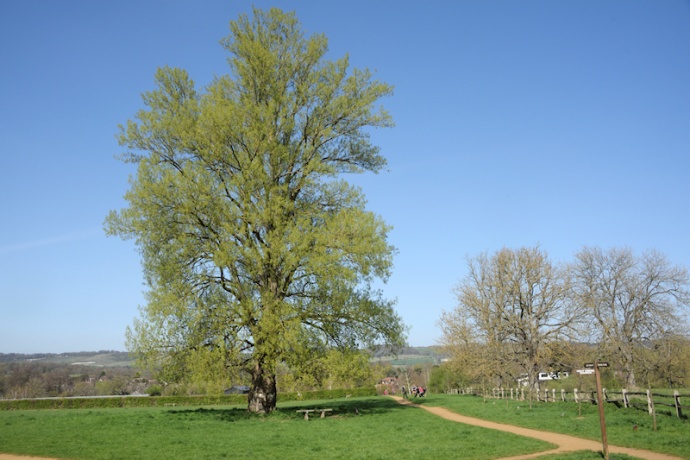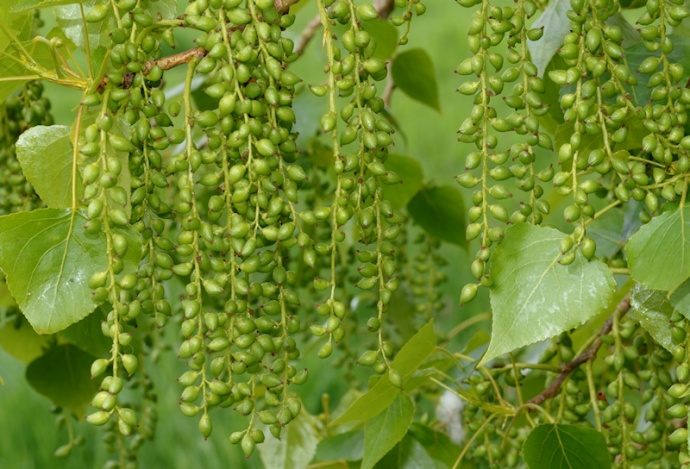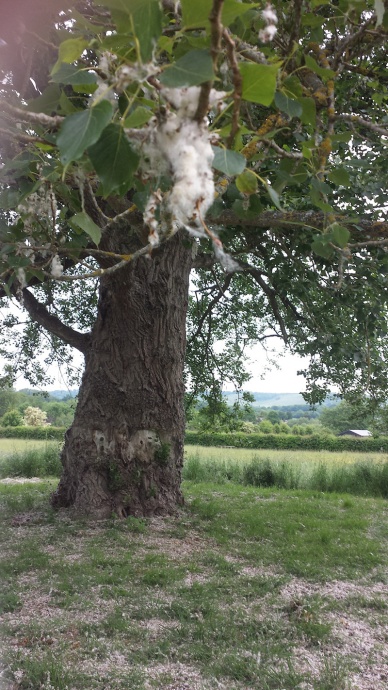The Black Poplar Populus Nigra, is a member of the willow family. They are either male (95%) or, like ours, female (5%) and they are pollinated by the wind. They hybridise readily, and we'd need a scientist to tell if our particular specimen is pure or mongrel. To get pure specimens you need to take cuttings, and the Prince of Wales is doing exactly that to produce hundreds to plant along riverbanks to help with protection against flooding. If ours is pure, it is very rare: there are only 7,000 pure Black Poplars left in the UK, of which only 600 are female. Black poplars can live for 200 years.
They provide food for many types of moth, the blossom is a good source of pollen and nectar for bees and other insects and the seeds are eaten by birds. Ours produces long catkins which ripen into seed pods, which dry and open shedding quantities of white fluff!
Black poplars used to be used for the manufacture of matches, but nowadays the timber is used for artificial limbs, wine cases, shelves and toys.


